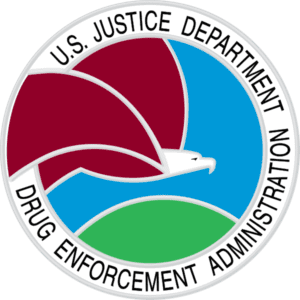DEA Says Counterfeit Pills Made With Fentanyl A Public Health Risk And A Law Enforcement Challenge
 Each year, the U.S. Drug Enforcement Agency (DEA) releases a strategic assessment of threats posed by drugs to communities across the country, and their newest report was just released. The 2018 National Drug Threat Assessment combines reporting from federal, state, local, and tribal law enforcement agencies with public health data, open source reporting, and intelligence gathered from other government agencies to determine which substances and transnational criminal organizations pose the greatest threats to Americans. Counterfeit pills made with fentanyl were one of the many threats the DEA is currently concerned about.
Each year, the U.S. Drug Enforcement Agency (DEA) releases a strategic assessment of threats posed by drugs to communities across the country, and their newest report was just released. The 2018 National Drug Threat Assessment combines reporting from federal, state, local, and tribal law enforcement agencies with public health data, open source reporting, and intelligence gathered from other government agencies to determine which substances and transnational criminal organizations pose the greatest threats to Americans. Counterfeit pills made with fentanyl were one of the many threats the DEA is currently concerned about.
In the DEA’s assessment, the primary source of illicit fentanyl and other synthetic opioids continues to be China and Mexico, and fentanyl continues to be smuggled into the U.S. in powder and counterfeit pill form. The DEA says fentanyl is widely available across the country, with 11 out of 21 Field Divisions (FDs) reporting that fentanyl was easily attainable in their area during the first half of 2017. Additionally, 17 out of 21 FDs said the drug was more available in their areas during that same period as it was in the second half of 2016.
While the DEA analyzed 583 kilograms of fentanyl powder compared to just 17 kilograms of counterfeit fentanyl pills, they said simply comparing the total weights of the different seizures do not accurately represent how dangerous the fake pills are. Those pills still present a genuine public health risk and a law enforcement challenge. In 2016, the National Survey of Drug Use and Health stated that there were 475,000 current heroin users in the U.S. compared to approximately 3.4 million people who misused prescription pain relievers. Since drug traffickers began making counterfeit pills with fentanyl, the number of users who could be exposed to the drug has increased dramatically.
In the assessment, the DEA noted the link between counterfeit pills made with fentanyl being found in an area and an increase in overdose deaths. The Partnership for Safe Medicines has been tracking the counterfeit fentanyl pill crisis and to date has found documented instances of fake fentanyl pills in 45 states with deaths in 27 of those states.